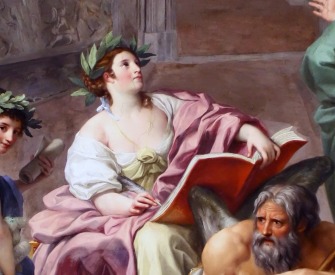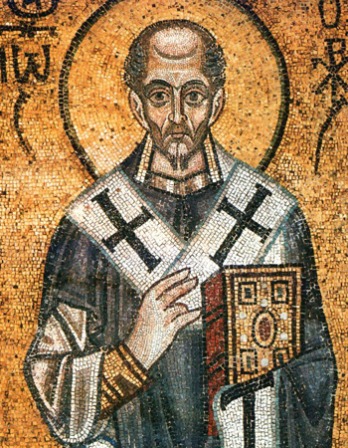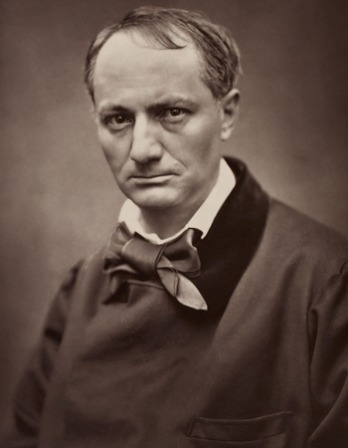When God first made and filled the earth
with people and throughout its girth
all creatures that belong there, then
he set up three orders of men
to live on earth by his decree:
the clergy, knights, and peasantry.
Each has his place. He gave the rights
to own and govern to the knights,
and to the clergy tithes and alms,
and last of all he gave the farms
to peasants to be sown and tilled,
and thereupon, his task fulfilled,
he left his creatures and withdrew.
Is he was leaving, into view
there came the profligates in hordes,
the entertainers and the bawds.
He’d not gone far when they approached him,
began to cry out, and reproached him:
“Where are you going, Lord? Do say
a word to us! Don’t leave us! Stay!
We’re given nothing and are slighted,
though for the others you’ve provided.”
Hearing them, our heavenly sire
looked on them and deigned to inquire
of St. Peter, who’s standing near,
about those people over there.
He answered, “They’re a surly race
also created through your grace.
Like those who place their trust in you,
they’re clamoring that for them, too,
you see fit to make some provision.”
Our Lord corrected the omission,
but spoke no word to them; instead
he went straight to the knights and said,
“You lords to whom I gave all lands
to rule, I now place in your hands
the entertainers as your charge
to live among your entourage.
Be generous and openhanded
with them, for I, your God, command it,
and do not treat them with disdain.
And you, my clergy, shall maintain
the harlots under your protection
in accordance with my direction.”
In keeping with the Lord’s decree,
the clergy supports harlotry,
holding these women in esteem
and making sure they get the cream
of all of mother church’s riches.
Contrariwise, my fable teaches,
if you have understood it well,
as for the knights, they’ll go to hell.
They look with scorn on the performers,
who must live poorer than a dormouse
and go about without a pair
of shoes, while whores get furs to wear
and well-lined cloaks and fine attire.
The entertainers for their hire
get little enough of their lords.
For all their fine and noble words,
they give them only worn-out garments
and toss them, as they would to varmints,
of their fine dinners, scraps and messes,
while harlots often change their dresses,
sleep with their priests, and what they’re fed
is counted in the overhead.
The priests do this for their souls’ sake,
whereas the stingy knights forsake
the entertainers, and are damned
for violating God’s command.
Not so the priestly class, because
they’re generous and serve their whores;
their actions are my evidence.
They lay out the inheritance
and the wealth of Christ crucified,
keeping their mistresses supplied
out of their rents, tithes, and donations,
and merit our congratulations
above all others for this act.
If what my fable tells is fact,
the clergy is assured salvation
and the knights will go to damnation.
Reprinted from The Fabliaux, translated by Nathaniel E. Dubin. © 2013 by Nathaniel E. Dubin. Used with permission of Liveright Publishing Corporation. All rights reserved.
An anonymous fabliau. Written between the late twelfth and mid-fourteenth centuries, the majority of fabliaux are ribald and cunning in nature. These verses—composed in vernacular language and perhaps the first significant expressions of literary realism in Europe—were popular first in France and later in England, and then mostly unknown between the Renaissance and the rediscovery of the Middle Ages in the mid-nineteenth century. Approximately 150 fabliaux are extant today.
Back to Issue




